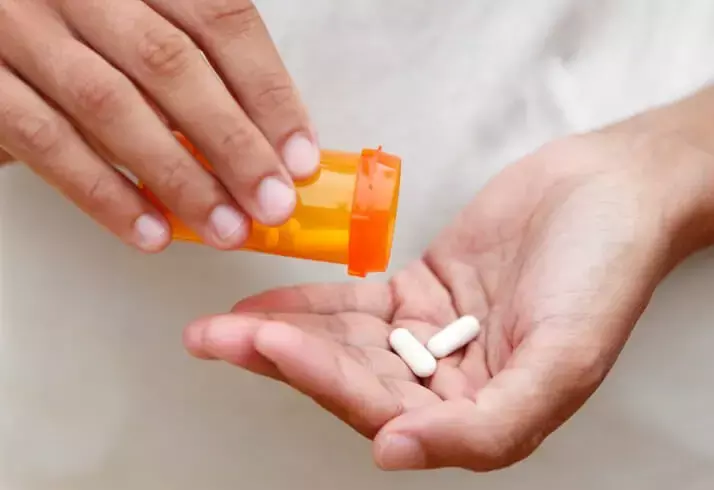- Home
- Medical news & Guidelines
- Anesthesiology
- Cardiology and CTVS
- Critical Care
- Dentistry
- Dermatology
- Diabetes and Endocrinology
- ENT
- Gastroenterology
- Medicine
- Nephrology
- Neurology
- Obstretics-Gynaecology
- Oncology
- Ophthalmology
- Orthopaedics
- Pediatrics-Neonatology
- Psychiatry
- Pulmonology
- Radiology
- Surgery
- Urology
- Laboratory Medicine
- Diet
- Nursing
- Paramedical
- Physiotherapy
- Health news
- Fact Check
- Bone Health Fact Check
- Brain Health Fact Check
- Cancer Related Fact Check
- Child Care Fact Check
- Dental and oral health fact check
- Diabetes and metabolic health fact check
- Diet and Nutrition Fact Check
- Eye and ENT Care Fact Check
- Fitness fact check
- Gut health fact check
- Heart health fact check
- Kidney health fact check
- Medical education fact check
- Men's health fact check
- Respiratory fact check
- Skin and hair care fact check
- Vaccine and Immunization fact check
- Women's health fact check
- AYUSH
- State News
- Andaman and Nicobar Islands
- Andhra Pradesh
- Arunachal Pradesh
- Assam
- Bihar
- Chandigarh
- Chattisgarh
- Dadra and Nagar Haveli
- Daman and Diu
- Delhi
- Goa
- Gujarat
- Haryana
- Himachal Pradesh
- Jammu & Kashmir
- Jharkhand
- Karnataka
- Kerala
- Ladakh
- Lakshadweep
- Madhya Pradesh
- Maharashtra
- Manipur
- Meghalaya
- Mizoram
- Nagaland
- Odisha
- Puducherry
- Punjab
- Rajasthan
- Sikkim
- Tamil Nadu
- Telangana
- Tripura
- Uttar Pradesh
- Uttrakhand
- West Bengal
- Medical Education
- Industry
Type 2 diabetes: Semaglutide better than dulaglutide for reducing blood sugar and body weight, study finds

Denmark: In an indirect treatment comparison (ITC), semaglutide 2.0 mg showed significantly greater reductions in blood sugar levels and body weight compared to dulaglutide 3.0 mg and 4.5 mg. The findings of the study, published in The Journal of Clinical Endocrinology & Metabolism, provide important information on comparative effectiveness until the availability of randomized head-to-head studies.
Currently, there is no availability of head-to-head data comparing semaglutide 2.0 mg with dulaglutide 3.0 mg or 4.5 mg. James Baker-Knight, Novo Nordisk A/S, Søborg, Denmark, and colleagues, therefore, conducted an ITC of their effects on glycated hemoglobin (HbA1c) and body weight in type 2 diabetes (T2D) patients.
For this purpose, they conducted a multilevel network meta-regression (MLNMR) based on a connected evidence network of published results from the AWARD-11 trial and individual patient data (IPD) from the SUSTAIN FORTE and SUSTAIN 7 trials.
Following were the study's key findings:
- Semaglutide 2.0 mg significantly reduced HbA1c versus dulaglutide 3.0 mg and 4.5 mg, with estimated treatment differences (ETD) of –0.44%-points and –0.28%-points respectively.
- Semaglutide 2.0 mg also significantly reduced body weight versus dulaglutide 3.0 mg and 4.5 mg with ETDs of –3.29 kg and –2.57 kg respectively.
- Odds of achieving HbA1c <7.0% were significantly greater for semaglutide 2.0 versus dulaglutide 3.0 mg (odds ratio [OR]: 2.23), while this did not reach significance for semaglutide 2.0 mg versus dulaglutide 4.5 mg (OR: 1.58).
- Sensitivity analyses supported the main analysis findings.
"This ITC showed significantly greater reductions from baseline in HbA1c and body weight with semaglutide 2.0 mg vs dulaglutide 3.0 mg and 4.5 mg," the authors wrote. "The findings provide important comparative effectiveness information until randomized head-to-head studies become available."
Reference:
Ildiko Lingvay, Robert Bauer, James Baker-Knight, Jack Lawson, Richard Pratley, An indirect treatment comparison of semaglutide 2.0 mg versus dulaglutide 3.0 mg and 4.5 mg using multilevel network meta-regression, The Journal of Clinical Endocrinology & Metabolism, 2021;, dgab905, https://doi.org/10.1210/clinem/dgab905
Dr Kamal Kant Kohli-MBBS, DTCD- a chest specialist with more than 30 years of practice and a flair for writing clinical articles, Dr Kamal Kant Kohli joined Medical Dialogues as a Chief Editor of Medical News. Besides writing articles, as an editor, he proofreads and verifies all the medical content published on Medical Dialogues including those coming from journals, studies,medical conferences,guidelines etc. Email: drkohli@medicaldialogues.in. Contact no. 011-43720751


